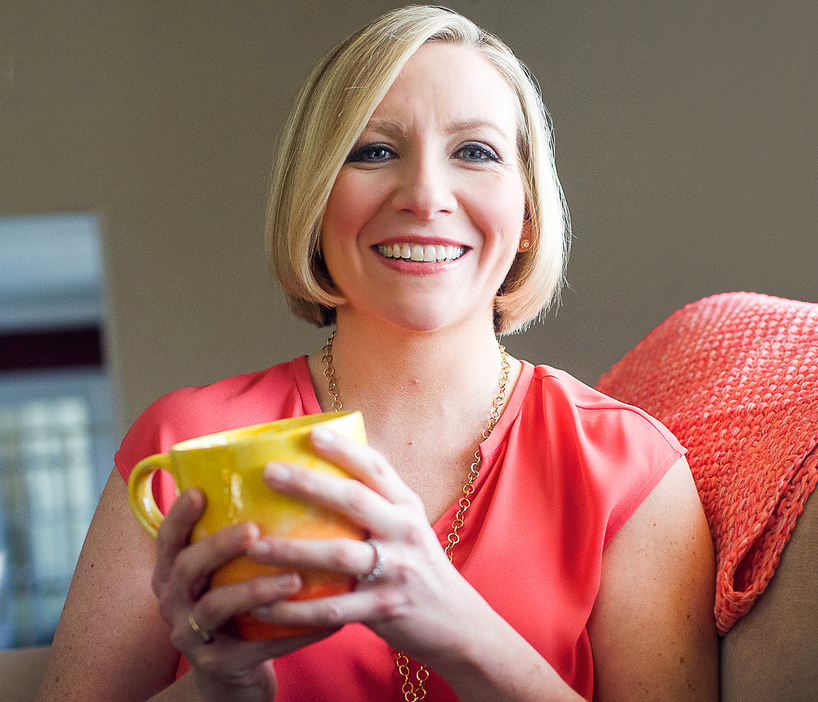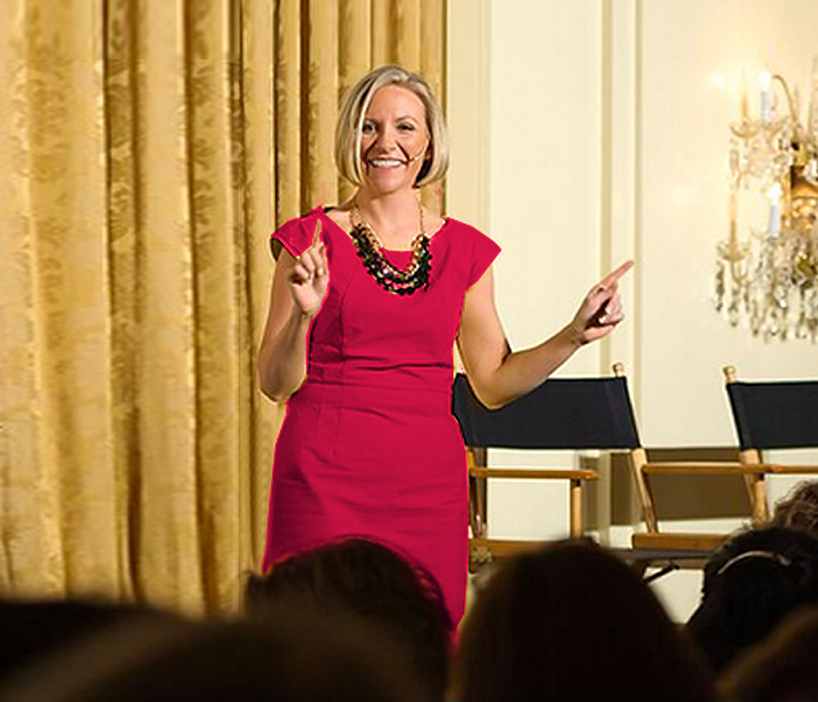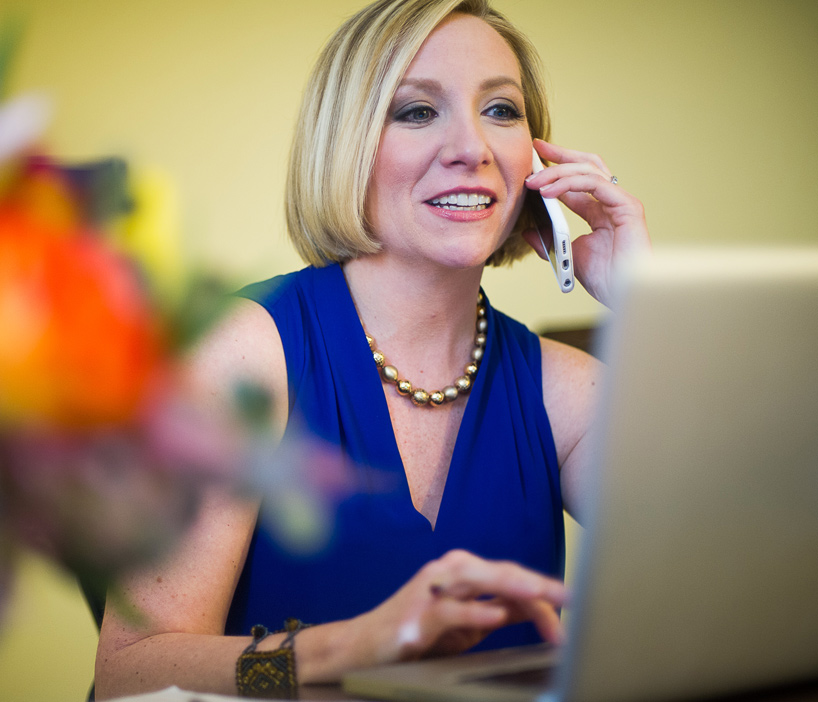Is it possible to create a world that’s equitable? What does that really mean? How do we identify and measure that?
Patty’s guest Nell Edgington is sharing her wisdom on this timely episode. Nell started writing her recently released book, Reinventing Social Change: Embrace Abundance to Create a Healthier and More Equitable World in 2019.
Then 2020 and the pandemic hit. She explains that working with non-profit leaders helped her see how the system is broken. Her message: people looking to shepherd big change can embrace and experience abundance.
You’ll hear insights about:
– Why non-profits have been undervalued and how to change the dynamic.
– Scarcity thinking and how it shows up in nonprofit organizations and society at large
– The power of yet concept and why it works.
– Why over-giving is a disfunction that is not sustainable.
– Gender giving differences
Find out how creating the space for possibilities is a first step to abundance.
It’s a momentum shift that can be subtle at first. It can be as simple as looking at a strategy to get help.
Connect with Nell:
Her book
Website
Twitter
SUBSCRIBE TO THE SPACE FOR MAGIC PODCAST ON YOUR FAVORITE PODCAST PLATFORM
Apple | Spotify | Stitcher | iHeart | Amazon
Transcript
0:00:04.3: Welcome to the Space for Magic podcast where people who are led by their hearts come to learn the secrets to receiving all the gifts the Universe has for us. I’m your host, Patty Lennon. I’m an ex-Type A corporate banker turned intuitive coach. Using a blend of common sense, brain science, and just a dash of magic, I’m here to help you create abundance in every area of your life and business. Welcome. Hey, welcome to this episode of the space for magic podcast, today, I have a very special guest with us that I think is gonna have insight into something that I know has been top of mind for me, and I think has been top of mind for you. I would suspect, knowing the year we just went through in 2020, and the reason I say that is she’s an expert on so many things, but specifically about how do we create a more equitable world, isn’t this something that’s so top of mind for us right now and so I guess Nell Edington is, among other things, a friend and a former client, and I’ve just had such a huge appreciation for the integrity and the persistence and the dedication that she brings to her work, she is an expert, that works as a consultant within non-profit organizations specifically to help them raise their work in the world and create equity amongst people in the process.
0:01:48.0: So with that welcome Nell. Hi Patty, I am glad to be here, and you are the author of the soon to be released as we are speaking, but when this podcast dropped, it will have been released re-inventing social change. Oh gosh, this is a hot topic, and I know you started conceiving of this book before we knew how much it would be needed… Well, I know you would say it was always needed, but maybe at the larger circle of us would understand that it was needed in the world.
0:02:23.5: Yeah, yeah, I started writing the book in 2019, I guess. Yeah, and then the pandemic hit… Yeah.
0:02:33.5: And it wasn’t just the pandemic. I think the pandemic just sort of almost like, you know, the way that an oyster is irritated to create a pearl, it’s like it was the irritation that made us see what we really need to look at. We do. Yeah.
0:02:48.1: I would totally agree with that. Yeah, it’s… The pandemic has really, I think, served… I view it as a gift, a really challenging and difficult gift to absorb, but a gift in that it’s uncovering all our many broken systems, racial inequity, gender disparity, a broken education system, broken healthcare system, our economy… So many things are wrong right now with how we interact as a society and how we treat each other as human beings, and the pandemic has brought this to us and start relief.
0:03:26.3: So take us back before all of that, what was it that made you start to conceive of this book and want to bring it into the world.
0:03:36.1: Well, I’ve been working with non-profit and philanthropic leaders my whole career, and what I’ve been struck with over and over again is how they are held back, they have this amazing vision for a better world, whatever it is, to feed the homeless, to educate those that are left behind, whatever it is, but they themselves are held back from that vision because they can’t raise enough money, they can’t engage their board effectively, they can’t get enough attention, whatever it is, they are held back, and I just truly believe that there is an opportunity to flip that, and it starts with the individual, the individual realizing they don’t have to be stuck in scarcity, they can actually open themselves and their organization and their work to abundance.
0:04:22.2: And when you say the individual, you’re talking about that individual leader within that organization.
0:04:28.5: Yeah, non-profit leaders, philanthropic leaders, anyone really, that’s working towards some sort of positive change in the world.
0:04:36.3: And so when you wrote the book, what was it that you hoped someone reading it, what’s the main thing you want them to walk away with.
0:04:47.2: To realize that, first of all, they’re not broken, the system is broken, and that there is a better way, there is a way for their work to be joyful, to be exciting again, to be fully funded, it’s possible for that vision they had so long ago to truly come to fruition and to come to fruition in a way that really works for them as a person as well, and you.
0:05:11.8: Know, obviously, I don’t come from the non-profit sector, but so much of what you’ve told me about, it reminds me of what I saw interwoven in the mental health world, that there’s just these subtle and not so subtle messages that when you’re working to help people that you shouldn’t be focused on money, that… Or if there’s money available, it, you go, directed to the most needy and don’t utilize it to create full functioning systems. Really? That’s right, and I’m curious, ’cause you brought that word in abundance, and I know that that’s a cornerstone to what you teach, how do you see that playing out in a world, I imagine that is so focused on making that money just flow to the most needy and unfortunately, sometimes then that means it’s not utilized along the way to make us some work…
0:06:15.4: Yeah, I think underlying argument or what I really believe is why is it that for-profit companies like Amazon or Facebook have all kinds of money, all kinds of infrastructure systems, staff, attention to do the work that they do in the world, but those organizations that are trying to create equity, trying to feed people trying to take care of the social needs that are prevalent, why are they so held back, why is it that they aren’t able to attract that kind of abundance? And for me, it starts with the fact that we have treated the non-profit sector and the philanthropic sector so poorly for so long, we have rooted it in scarcity, the way that we fund it, the way that we talk about it. And actually, in my book, I talk about how it’s really… It’s sort of an example of gas-lighting, the psychological term, where you to manipulate a person or in this case, I think a sector into thinking that they’re not worthy and they’re not valuable, and sometimes they’re kind of crazy. And so I think that’s just a big shift that needs to happen, we need to start seeing our social change leaders as equally valuable as our for-profit business leaders are.
0:07:35.6: And what do you think for the people listening who may be a small portion of them are involved in the non-profit sector, but probably a larger portion, support the funders of that non-profit sector, what can they do? What’s available to the majority of the people to help be a part of this change? Well.
0:08:01.7: I think, honestly, the message of the book is really that there’s scarcity thinking in all of us, no matter what role we play in society, and to start with yourself and to sort of move beyond that scarcity thinking and to do it in your own life, but then to do it in the ways that you fund or invest or donate to non-profit organizations as well, to think about how fun they can use the money and to be open with that money and hope that they use it however they see fit, to really elevate the work that they’re doing, do you have any specific recommendations on how the people you specifically help in your work or any of us can shift out of that scarcity mindset into that abundance mindset or way of living? Yeah, so one of my favorite tools that I talk about in the book is the power of yet, which is actually a… It was a Sesame Street song that Janelle one saying several years ago, but it’s this concept of the word yet, it’s a really simple word, but if you attach it to any scarcity thinking, it provides a bridge towards abundance.
0:09:18.0: So for example, if the leaders I work with, if they’re always struggling to raise money, so they may say things like, We don’t know how to fundraise effectively, we can’t bring enough money in the door, a board doesn’t like to fund-raise. But if you take any of those sentiments that are, again, rooted in that scarcity, that fear, that lack and attach the word yet to it, it opens the possibility to something much, much bigger, so we don’t know how to fundraise effectively yet, but if we start to learn if we ask for help, if we get some expertise in guidance, we can change that, our board doesn’t like to fundraise yet, but if we work with them, if we train them, we move them to more knowledge around money we can change that. So that little word I think just has tremendous power to just open you and your organization and to whatever work you do, to their being so much more out there for you.
0:10:13.5: So I’m gonna be the devil’s advocate on the side of something that I hope you’ll give me some leeway around, if not, we’ll delete this part of the interview. What would you say to someone that says, You know what, now, I’m looking at the non-profit sector, and I hear what you’re saying, but I don’t know, I’m outside of it looking in, and I don’t know that the model works anymore. Maybe social change needs to come exclusively from the for-profit sector.
0:10:48.8: I guess, first of all, I would say the for-profit sector hasn’t figured their stuff out either, right, we’ve seen financial collapses and we’ve seen questionable activities and all sorts of things that happen in the… For-profit sector. And the thing about the non-profit sector as they’re providing a public good, they’re often providing a service that they’re just… There isn’t a market solution for… People aren’t willing to pay for some of the things that we as a society need to have the social safety net is a perfect example of that. Very few people are gonna pay to feed other people, and so there are things that the market just never will be able to solve. I agree with you that there is a lot of dysfunction in the non-profit sector, there are a lot of broken aspects to it, and that’s exactly why I wrote my book, but I don’t think you can just throw the whole sector out, it provides tremendous value. The key is to change those dysfunctional aspects, those broken aspects to the system, so that those leaders that have a vision for how we can do things better as a society, how we can take care of each other better, how we can better create inclusivity and connect each other…
0:12:03.0: How we can do all of those things in much better ways, but we have to provide the funding, we have to provide the abundance that those leaders need…
0:12:12.3: Yeah, and that, you know what you’re saying, just feel so to mirror what I see and just not just, but in the world, I work in, of individuals where… And I know, you know this, you’ve been a part of my community too, and you’ve seen it, is that it seems like the people who just feel called to do good in the world, that’s just… They’re just givers, and they’ve been socialized to give and as a result, have been also socialized that receiving just doesn’t… It’s not as valuable, and then so they give to this extreme level and are depleted, and then there’s this other population who doesn’t feel that impulse, and it almost is completely imbalanced to the other side, and then there’s this power disparity. Do you have any thoughts on what mechanisms can start to rebalance that power disparity?
0:13:14.4: Yeah, absolutely, I’ll talk about a couple of them in my book. The first is what you were just touching on, which is this idea of over-giving, which is so prevalent in the non-profit sector, and I know you see this in your work as well, but over-giving is actually a dysfunction of giving, you’re giving far beyond where you’re depleted, you’re giving in hopes of getting something back in return that’s filling a need for yourself, so maybe it’s approval or something like that, whereas where you wanna be as generous giving, where you’re giving when only when you are already yourself completely full. And so you are overflowing and you’re giving simply because the active giving is helpful to you and restorative to you, and so in an over-giving situation, you are equal with who you’re giving to and you are equally receiving and giving. And so in the non-profit world, there’s this disparity between funders and non-profits who are being funded, and it’s this dysfunction of over-giving on the non-profit’s part, and this feeling that I’m not as good as my funder, I’m not equal to my funder, and that’s such a dysfunctional giving-receiving relationship.
0:14:31.7: And so I talk a lot about how as a non-profit leader, you want to view yourself as a complete equal to your funder and you want to train and teach your funder that they are equal to you, and so that you can start to move beyond that very dysfunctional imbalance to Give-Receive relationship.
0:14:49.9: Oh, that’s good. And so I’m thinking of a conversation, I can’t… Unfortunately, I can’t give credit to the person that informed this, ’cause she is an expert in diversity and inclusion, but she’s not ready to go public with her opinion on this… So I’ll just say it is from someone that actually knows a lot more stuff than I do, and we were having a conversation, I think it was early in the pandemic about just the kind of stuff out that was out there to… The pandemic was sort of a conspiracy of Bill Gates, and I was kinda talking to her that I did really buy into that, and I don’t know why so much hate on him when he’s giving so much money, and she wasn’t supporting the conspiracy, but she was saying Well, the problem with the way that Bill Gates gives is he wants to control exactly how the money is used, and that to me was new information, I didn’t understand how problematic that is, and she was explaining that when you have an organization… A non-profit organization that’s set up to solve a problem, you have the experts in how to solve that problem when someone comes in just because they have money, they’re not necessarily the expert, so when they give that money, it’s really only gonna work if it’s given freely…
0:16:07.6: And then I saw Jeff Bezos’ wife, which… So embarrassed, I don’t remember her first name and a… How she just gave recently and how she just… From what I could tell was showing up in such a different way, it seemed that she was trying to show what it looks like to give in a way that truly helps, but again, I come at this with such a basic knowledge, I would love for you to kind of reflect back to me what parts of that you agree with and where that plays into what you’re seeing…
0:16:41.1: Yeah, I agree with all of that. And what I think is so interesting about the two examples you gave Patty is, and I’m not saying this is across the board, but there is a documented difference in gender giving. So men, just as men spend their disposable income in different ways than women do, male philanthropy is different than female philanthropy, and what’s so exciting about right now in terms of philanthropy is along with what I talk about as a great reset or a re-invention of Social Change brought on, I think by the pandemic is at the same time, you have this huge wealth transfer happening from Baby Boomers to millennials, and women are coming into wealth in much bigger ways, not only because of the wealth transfer but also there are women entrepreneurs, women are making their… More of their own money, they have more control over their money, etcetera, and they’re doing their philanthropy in much different ways, more like the McKenzie model, as you said. Not sort of coming in and saying This is the way it’s gonna be. But really trying to be more supportive of it, to give it more community-based plays, etcetera.
0:17:55.1: And so that I think is very exciting, this sort of shift in money and the gender implications of how philanthropy could be a more inclusive equitable thing itself within the social change sector.
0:18:11.9: Now, do you see with leaders that female leaders operate differently than male leaders, or is this scarcity issue and across the board problem…
0:18:24.4: I think it’s an across the board problem in the sector, I think just the history of the sector, how it’s been funded, how’s been restricted, the legal restrictions on that, political restrictions on it, etcetera, have just set the sector up to be very scarcity-based, and so I don’t know that I can say that women non-profit leaders are more scarcity based than men are, I think it’s just sort of the nature of the sector right now.
0:18:50.4: So I found what people are typically called to do, and this doesn’t always apply 100% of the time, but typically, most of us who are in the helping field, and you are in the helping field, your goal is to help these leaders that we have this experience in our past, this wounded healer experience where we had a wound that we healed. And in healing that wound that we ultimately are able to serve from this more social, emotional, and spiritual intelligence, you have anything in your history that looked like you healing the scarcity belief system that led you to be able to perform at a different level in this work. Yeah, absolutely. I say in the introduction to my book that I really was… As I was writing this book, I was writing it to myself, this sort of overcoming this whole…
0:19:54.3: And I don’t think fully overcome it yet, this scarcity kind of rooted in scarcity, and my whole non-profit career was again based in this sort of ethos of scarcity and so… Yeah, absolutely. That it’s a journey. I think, honestly, I think we’re all on is to move towards abundance, and.
0:20:16.3: Do you have any advice or any examples of specifically things you’ve done that have been effective in helping heal this piece?
0:20:26.9: Yeah, a lot of the things that I talk about in the book, the thinking about funders, or in my case my clients or some of the folks that I work with, viewing them as complete equals in the work, and thinking about money in much different ways. So moving away from, I think, a very fear-based as an entrepreneur, I’ve had social velocity now for 12+ years, but for a long time, there was just a constant fear that I think a lot of entrepreneurs have about cash flow and money and when will come in and how well, it flow and things like that, so that has been a journey, but I’ve gotten to a place where I just can trust that the work will provide… And the universe will provide… And if you do the work and you set your goals and things will line up accordingly…
0:21:23.8: So when you look at the non-profit sector, do you see any organizations that are doing a really good job that are leading the charge and really embodying the way that you see that social change needs to be reinvented?
0:21:41.3: Yeah, so one of my clients is in the journalism space, and you know journalism has really taken a lot of hits over the last many years, just in terms of lots of journalists losing their jobs, newspapers and the news entities just not having budgets anymore, there’s just a lot of scarcity thinking, but also just sort of scarcity ethos that I think is even stronger in the journalism sector, than on private sector overall, and the online news association, This client has over the past couple of years, really embraced change, they are a membership organization for journalists that are digital journalists, and they’ve really reinvented themselves, they had to do a lot of pivoting in the pandemic move all of their in-person events online, have a much bigger digital presence than they had before, and they’ve raised a lot more money around doing the work and just been really, I think, embrace the opportunity that the pandemic, and then all the other shocks that have impacted the journalism space have really embraced it all instead of powering and fear and worrying about making budget and things like that, they’ve created some pretty ambitious growth plans, implemented them, got board, staff funders, etcetera, excited about it, and have really, I would say, knocked it out of the park.
0:23:12.4: In what is otherwise, I think a really tricky time for these organizations, and.
0:23:18.5: What would you say kind of shifted them… Do you know that there might have been a moment or a pivotal event or a specific pinpoint in time that created that shift in approach… I.
0:23:33.8: Don’t know if it was a specific moment in time, for me, it was just sort of a shift, and I say this a lot in my clients, they start to see a little light at the end of the tunnel, like maybe moving towards abundance is possible. They start to let down their guard a little bit because you have to convince the brain that it’s not all terrible, there is some potentially positive things happening out there, and so you start to build on that momentum, and there’s this sort of snowball effect that happens and so over many, many months, I think they started to move towards thinking that more was possible, they could have big plans, they could raise more money, they could start to do these things, and as the pieces began to fall into place, that just creates that snowball effect where Oh, maybe this is true. Maybe this is an easier path, maybe this abundance thing can work and that just grows and grows and grows over time. That’s.
0:24:31.6: Interesting. So last week we had on Barbara Huson, who was talking about rewiring for wealth, women rewiring for wealth, and she talked about, you know that part of it is that you need to open up space for possibility, and that becomes the doorway, and that’s what I’m hearing you say here too, is when the possibility of abundance becomes that light at the end of the tunnel that starts to open up lots of different doorways.
0:25:04.6: That’s absolutely right, and that’s why I think, as I was talking about earlier, is using the word yet, if you have anything, any kind of tiny bridge, any kind of little opening, any kind of little belief that maybe something bigger is out there… Just opening that door a crack can start that momentum flowing and so… Yeah, I absolutely agree with that.
0:25:28.1: I love that. So… Have you seen specific examples? You know what I see in my work all the time is once someone starts to create the space for possibility, and that’s really what I call space for magic, it’s just you stop being in so much resistance to opportunity, resistance to help, support, money, all of it. That’s when the magic shows up, and of course, magic is my word for things occurring that 10 minutes ago or a year ago, your human mind didn’t believe was possible, what kind of magic have you seen happen as leaders have embraced this possibility for abundance?
0:26:09.5: Yeah. Oh, so many things. For my clients, so often it’s a resistance to any kind of support, asking for help, hiring an assistant, hiring some more staff, getting some expertise in fundraising, whatever it might be, but once they start to just open that possibility. So even a client I was working with today, she allowed herself a couple of months ago, allowed herself to think about hiring some additional staff, and it was a little bit resistant to at the beginning, but finally did it and now has a couple of new people in place, and it has absolutely transformed her, just talking to her today, she just has so much more energy, she’s excited, she gets out of bed, ready to go in the morning instead of being just drained by 9 am, and so it’s just that… For her, it was just that shift in saying, it’s okay for me to say I need help, it’s okay for me to add some more staff, it’s okay that I can’t do this all by myself, and just openly saying that and just opening that door can be incredibly transformative.
0:27:23.0: I love that, I love that. I think that applies to all of us to get in that support and then suddenly life just has a little bit extra sparkle to it, but it’s… Right. Well, that’s awesome. Well, thank you for being here Nell, and I want to let all of you know that Nell’s book Re-inventing Social Change just dropped and hot off the presses, and why don’t you give everyone the page where they can get all the information on all the goodies associated with this new book release. Yeah, absolutely, so just go to socialvelocity.net/book, and you can find all the download link and incentives and all that good stuff. And if people wanna get in touch with you directly Nell, or they wanna follow you, where… Do you like people to connect with you?
0:28:12.0: Yeah, they can email me. Nell@socialvelocity.net, I’m also on Twitter @nedgington.
0:28:19.0: Awesome. Okay, we’ll put all those links in the show notes. So any last words of wisdom you wanna leave our audience with… Nell.
0:28:27.5: Yeah, I would just say it can be so much easier, and I say this from personal experience of many years of making it really, really, really hard, that it can be so much easier and once you just open that door a little bit, it’s… The magic will follow.
0:28:43.7: I love that, thank you for being here. Thanks for having me, Patty. And thank you for listening, I… Those of you out there are listening right now, grab Nell’s book… She is such a good writer. And this is such an important message for all of us right now. Thank you, have a wonderful day. And don’t forget, make Space for Magic. Hey, thanks for listening. If you know someone who needs to hear this message, please share this episode with them, and if you’re feeling really generous, I’d love for you to leave us a review at your favorite podcast app, it helps us reach many more people, and it fills my heart with so much joy when I hear what you have to say about what I’ve shared, I’m cheering for your success, have an amazing day, and don’t forget. Always create space for magic.
















